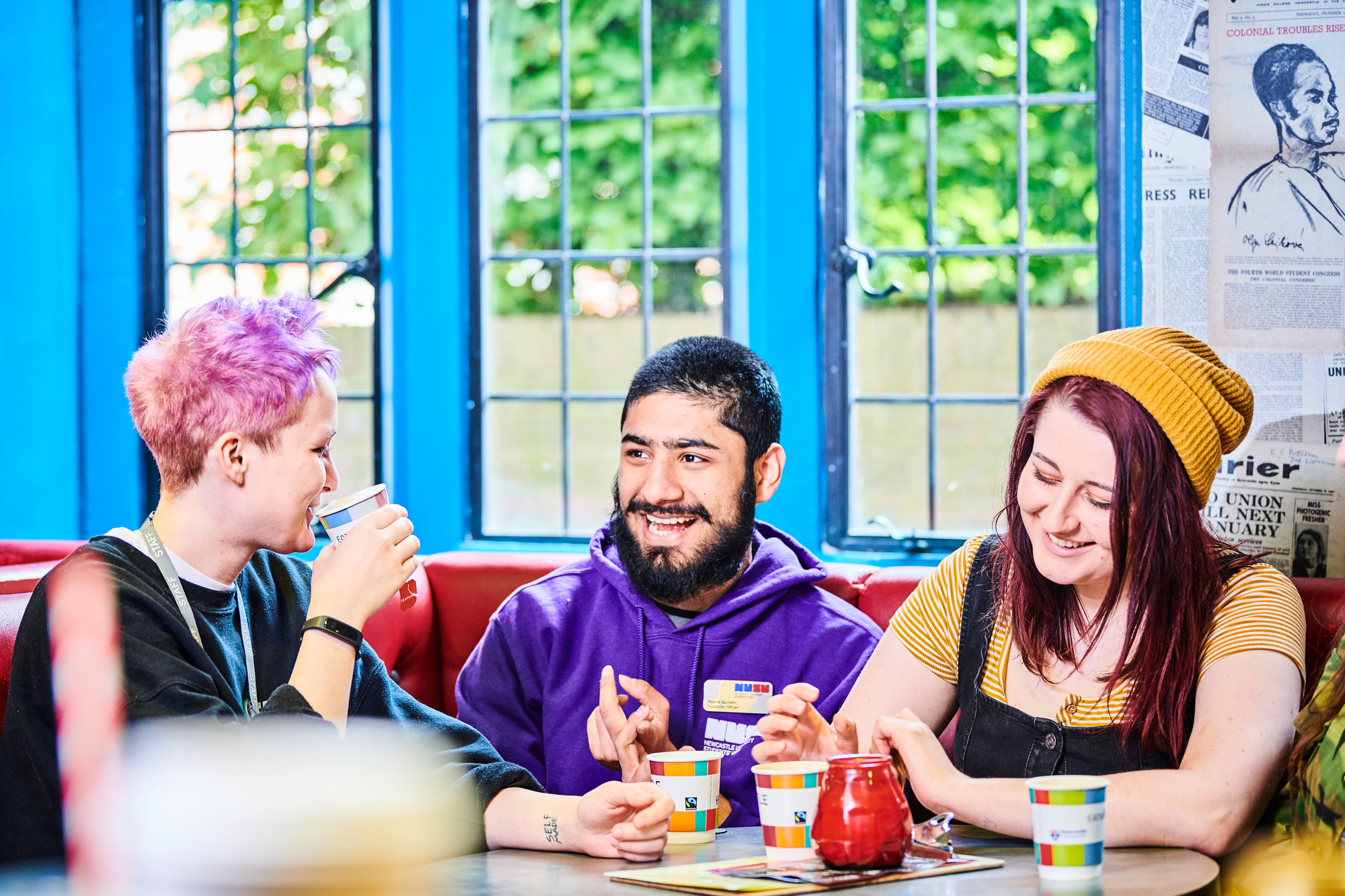Allyship
Find out how you can take steps to become an ally.
Allyship is actively supporting and advocating for marginalised individuals or groups in their pursuit of equality and social justice. Allies recognise and utilise their privilege to support long-term, sustained change.
What is 'privilege'?
Before continuing, it’s important to define ‘privilege’. By privilege, we refer to the unearned advantage a person receives from being part of a dominant group whose needs have traditionally been prioritised. It’s a common and dangerous misconception that being labelled as ‘privileged’ suggests that a person has never experienced any disadvantages. This isn’t the case – instead, it simply means that certain attributes haven’t added to your disadvantages.

Educate Yourself
Being an ally requires you to understand the struggles that marginalised groups might face. By educating yourself on these issues, you will be able to recognise problematic behaviours and challenge them. Although learning from those with first-hand experience can be informative, you should never expect members of marginalised groups to educate you at your request.
This toolkit can point you towards helpful resources you can read, listen to, or watch. Find what works for you – some people might prefer to read an article, while others might prefer to engage with a video or podcast.
Challenge Behaviours and Language
We understand that many people can feel uncomfortable speaking out, even if they know that something should be challenged. However, one of the most impactful actions an ally can take is actively challenging inappropriate behaviour. By doing so, you can use your privilege to educate others and foster a more inclusive environment.
What could this look like?
- Encouraging healthy discussions with your friends, flatmates and classmates about inclusivity.
- Correcting someone if they use outdated, incorrect or discriminatory terminology.
- Ensuring those from marginalised groups aren’t left out of the discussion – for example, pointing out if someone was spoken over in a seminar, or asking whose perspectives you are missing.
- Questioning biases that crop up in conversations and encouraging others to reflect on their assumptions. A simple ‘why do you think that?’ or ‘can you explain that joke?’ can often make a difference.
As students, you are also able to bring any situations that made you uncomfortable to the attention of relevant university staff. This could be your lecturers, personal tutors, EDI staff, or NUSU representatives.
Embrace Growth
Working to become an ally is an ongoing process and, as humans, nobody is perfect. That means you’ll probably make a mistake at some point. Learning to embrace opportunities to grow is not only important for allyship, but also for our everyday lives.
We’ve all given and received apologies in our lives and have likely realised that some apologies are more effective than others. Most people can probably recall an instance where an apology given fell short of what they expected.
When apologising for a mistake, especially one that involves a level of privilege, you could use Presley Pizzo’s analogy of “boots and sandals”. Imagine your privilege as a heavy boot, while those experiencing systems of oppression only have sandals. Your heavy boots might tread on someone’s sandals without you noticing, causing them harm, even if it wasn’t intended.
By using this metaphor, it highlights the common mistakes made when apologising:
- Centering yourself: “I can’t believe you think I’d step on your toes, I’m a good person!”
- Denial of others’ experiences: “It can’t hurt that badly.”
- Derailing: “Some people don’t have any shoes, let alone sandals. You shouldn’t complain.”
- Tone policing: “If you asked nicely, I’d move my foot.”
- Victim blaming: “You shouldn’t have been around people with boots!”
Instead, the correct way to respond would be to apologise, even if you didn’t intend to harm the affected. You can then listen to their response and learn, ensuring that you won’t repeat the mistake.
